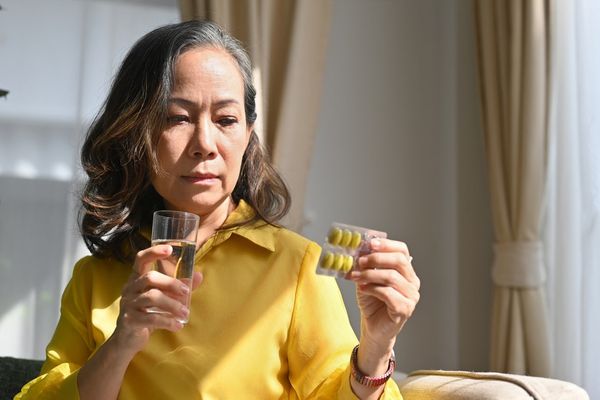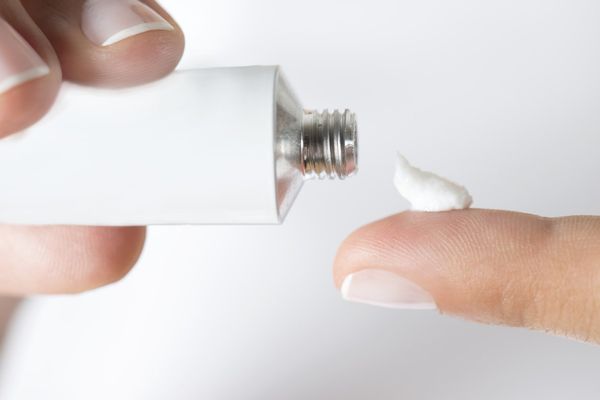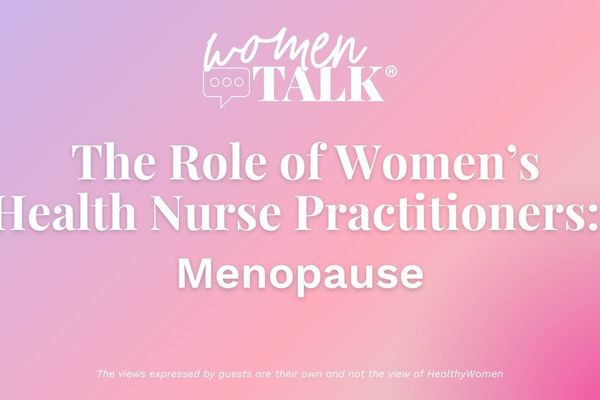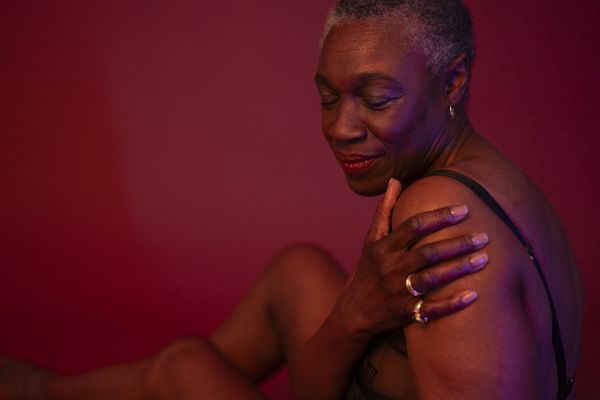As told to Erica Rimlinger
When I started to enter perimenopause 13 years ago, I’d never even heard the word. Menopause was never mentioned let alone discussed in my family or among my friends. When I was in my 40s, busy raising kids, running my business, enjoying a nice family life and a happy marriage, my sex drive suddenly vanished. It was like somebody turned off a light switch.
I had no idea why, and I didn’t have the language to communicate what I was experiencing to my husband or to anyone, least of all a healthcare provider. I asked myself: Is this aging? Is something wrong with me? Am I broken? Is my sex life over?
Growing up, I thought I had been educated about my body. But, looking back, my education only taught me how to avoid getting pregnant. Because female sexuality was taboo, I didn’t know who I could ask. Worse, I didn’t even know what to ask. I wasn’t familiar with the parts that played a role in my own sexuality as my body was moving into menopause.
My curiosity, and awareness that things were rapidly changing, led me on a deep dive to learn about sexuality in middle age. I needed to find out: What was going on, and why was it all such a big secret?
As a trained nutritionist and yoga teacher, I’ve long been interested in the mind-body connection. So I sought out mindfulness coaches, therapists and teachers in the field of intimacy and sexuality, who encouraged me to get to know myself.
First, I got to know my body and learned how all the parts that contribute to women’s sexuality work. I realized my drop in sex drive came after I had had some discomfort and that menopause symptoms were responsible for this.
When the levels of the hormone estrogen get lower during menopause, it affects the elasticity (how well something can go back to its original shape after stretching) in the vaginal tissue. That leads to thinning of the vaginal skin, dryness, pain and discomfort known as genitourinary syndrome of menopause (GSM). These changes can lead us to disconnect from pleasure and intimacy altogether.
Since I was beginning to show symptoms of GSM, it was becoming less of a mystery why I was turning away from sexual intimacy with my husband. After I learned about GSM, I joined a private Facebook group for women who have it. I was blown away by the number of women in the group. Hundreds of women had been suffering in silence before finding each other. Women in the group experienced the whole spectrum of GSM symptoms, from mild to severe. Reading their stories, I realized the importance of knowing my body well and learning to communicate about this topic.
I got to know what my vulva looks like to better understand what my normal is. I learned about the importance of intimate self-care and moisturized my vagina daily to alleviate dryness and discomfort and to keep my vulvar tissue healthy. GSM symptoms can be treated if we can get up the nerve to discuss them with our healthcare providers and intimate partners.
With my therapist, I addressed the emotional discomfort of going against the environment I grew up in that kept me from speaking up for myself, in my healthcare provider’s office and the bedroom. I learned to talk to my husband about my changing needs, introduced products such as lubricants and sex toys to our intimate life, and learned how to connect with him without shame or embarrassment. I learned to speak with confidence and clarity about my wants and desires, releasing the shame I was carrying around.

My exploration into what gave me pleasure extended beyond the bedroom. Sexual pleasure is a way of connecting with our bodies and our partners, but I realized I am more open to sexual pleasure when I open myself to the pleasure get from ordinary, everyday moments.
Stress, fatigue and overwhelm tempted me to soldier through my days to ensure everyone else was happy. But I learned that, when I pause from pushing and striving, I can focus on my own happiness. I learned to take time during my busy day for walks in nature, moving my body, and enjoying a cup of tea or delicious food. I also got rid of unhealthy habits that were causing me stress.
Addressing intimacy head-on was uncomfortable, but I learned the most in these places of discomfort. Prioritizing pleasure has allowed me to feel more at home in my skin, and more confident than I’ve ever felt in my body. My moods have gotten better and simply taking the time to ask myself what makes me feel alive and energetic has helped me grow creatively.
Most of all, I’ve learned the more we know and talk about menopause, this rarely discussed life stage, the better we can advocate for our bodies and ourselves. I’m sharing my story to make it easier for the next woman to find the answers she deserves so she can own her pleasure in midlife.
This resource was created with support from Alora.
- It Is Possible to Treat Painful Sex After Menopause - HealthyWomen ›
- Menopause and Your Sexual Health: When Dryness Equals ... ›
- Yes, There Is Sex After Menopause - HealthyWomen ›
- Sex Doesn't Have to End With Menopause - HealthyWomen ›
- Sex after Menopause: The Golden Years? ›
- What's Hot About Menopause? Sex! - HealthyWomen ›
- How to Have the Best Sex of Your Life After Menopause ... ›
- No, You're Never Too Old for Sex - HealthyWomen ›
- Yes, Middle-Aged Women Do Want to Have Sex - HealthyWomen ›
- Accessible Sex Toys for Women - HealthyWomen ›







